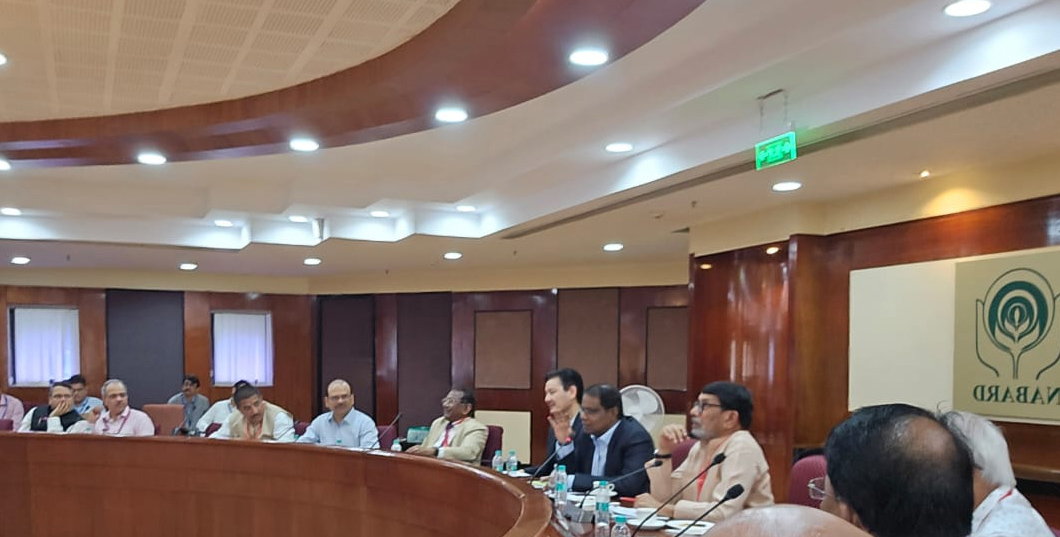NABARD organized a consultative meeting with the apex body of State Cooperative Banks—NAFSCOB—and Regional Cooperative Banks to address issues related to the Short-Term Cooperative Credit Structure (STCCS) on Friday.
The meeting took place at NABARD’s headquarters in Mumbai, where NABARD Chairman Shaji KV delivered the keynote address. Key participants included NABARD’s Chief General Manager S.K. Nanda, Deputy Managing Director G.S. Rawat, NAFSCOB Chairman K. Ravinder Rao, along with Chairman and Managing Directors of several State Cooperative Banks and District Central Cooperative Banks (DCCBs).
The discussions focused on several critical issues impacting State Cooperative Banks and DCCBs. A significant topic was the proposal to grant Scheduled Status to all SCBs and DCCBs across the country. It was noted that this issue has already been raised with the Reserve Bank of India (RBI) during a recent coordination meeting, and the necessary data is currently being prepared.
Another major concern was the relaxation of exposure norms for rural housing finance by DCCBs. The meeting highlighted that the RBI is considering a proposal to remove the existing limit of 5% of total assets, which would allow SCBs and DCCBs to extend housing loans according to sector-wise exposures as outlined in the CMA norms.
The representatives of SCBs and DCCBs also sought relaxation in the stringent conditions of Internet Banking. NABARD informed that it has requested the RBI to consider relaxations similar to those granted to Regional Rural Banks (RRBs).
Additionally, there was a demand for the establishment of a dedicated fund by NABARD to support the digital transformation of State Cooperative Banks and to implement a comprehensive cybersecurity framework across SCBs with NABARD’s assistance.
NABARD is reportedly considering the establishment of a Shared Services Entity (SSE), for which necessary approvals are being sought from competent authorities. A policy is also in the works for engagement with tech startups under the Technology Facilitation Fund (TFF).
The meeting also covered the development of the Cooperative Governance Index (CGI) for Rural Cooperative Banks, which is in its advanced stages. It is expected to be launched as a pilot in 69 SCBs and DCCBs by September 2024.
Participants emphasized the need to rationalize the interest rate structure on Short-Term (SAO) Refinance, currently available to banks at 4.5%. They also advocated for a more liberal policy regarding branch expansion.
During the meeting, it was revealed that NABARD has prepared an action plan for the formation of new District Central Cooperative Banks (DCCBs) in uncovered districts for complete coverage of cooperative banks, which is now nearing finalization.
NABARD’s General Manager, Urvashi Garg, delivered a presentation on the “Overview of RCBs.”
The session concluded with NABARD’s Deputy General Manager, A.K. Gupta, proposing a vote of thanks.














































